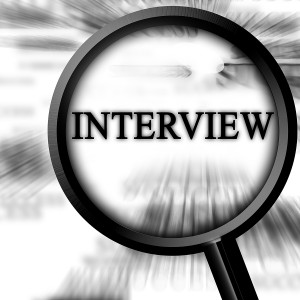Interviews! Gee, don’t you just love them?
Nevertheless we will all, at one time or another, be faced with the traumatic experience of having to front an interview. The problem is that they’re always so important for us; a new job, a promotion or even a career change can hang on the uncertainty of the interview; the pressure can be unbearable.
If only there were some simple guidelines that would help us make our mark; make it easy for the decision makers to remember us and single us out.
Well, of course there are, but they often get overlooked or even forgotten in the pressure cooked atmosphere surrounding ‘The Interview’ – so let’s take a deep breath and consider what we can do in advance to prepare ourselves to face the interview with confidence.
First find out something about the company or organisation that you want to work for. Do some research – look them up on the internet, read the annual report; if you know someone who works there ask some questions, if not call up and speak to HR. Make sure you have some knowledge of where the head office is, how many offices are there, what are the products or services offered by the company. Is the company big or small, is it new or has it been in business for a while.
Then focus on the specific job you have applied for; what does it entail in this company; what qualification, experience or quality do you have that you can bring to the company? In other words, how can you convince them you will add value to their product/service if they engage you?
This may seem elementary, but I can tell you that interviewers are often amazed at how many applicants turn up for the interview with no basic knowledge about the company or its products/services. If your interest in the company that you claim you want to work for is obviously minimal; why should you get the job? It certainly leaves a poor impression and it is so simple to fix – so start right; get some basic knowledge about the company and about the job. Give yourself the opportunity to demonstrate that you are interested in the company, and want the company to be interested in you.
Now that you have done some preliminary work – let’s look at the actual interview – what questions will be asked, what answers will they be looking for? Can we prepare for them?
They will certainly be looking at what you have done, what is your experience, knowledge and skills. This is a vital area where prior preparation is essential. Make sure you go over your resume – refresh yourself on dates (have a copy of your resume with you at the interview to check against if required). Look at the selection criteria listed on your application form; look at the type of questions asked. If they have asked about hobbies, interests or specific skills there, then you can expect they will ask you to expand on these at the interview. Make sure you have your thoughts and answers clearly in your mind. What areas of expertise, skill, and experience do you particularly want to highlight?
There are several potential questions that you can prepare for and you can be certain that at least one, if not many of these are generally asked at all interviews.
For example:
- Why this job?
- Why this Company?
- Where do you want to be in 5 years?
- What are your goals?
- What experience, training, qualifications and personal qualities are there in your favour relevant to this job?
- What are your strengths? How do they qualify you for this job?
- What are your weaknesses? What has previous performance assessments highlighted? Can these be portrayed in a positive light – How?
In respect to your work experience –possible questions you may get could be:
- What were you especially successful in?
- What problems occurred and how did you handle them?
- How did you get on with your colleagues?
- What does teamwork mean to you?
If you have listed activities or hobbies in your application be prepared for a general question based on them. For example: if you have listed reading as one of your interests you may be asked what book are you reading at the moment – prepare ahead and know something about the book you have claimed to have read. The same goes for movies, TV programmes or theatre. If there are questions about sport, consider if this may be related to leadership or teamwork. Reconsider what you have been involved in, in light of the criteria or experience needed for this job.
Prior preparation for the interview will ensure that you present yourself as competent, coherent and clear. In today’s world competition for jobs is fierce and often the final preference is given to the best communicator on the day – so you will need to:
PREPARE PREPARE PREPARE
So now you have prepared for the interview – you know about the company, the job, you have all your personal information at your fingertips. You have looked at questions you may get and have prepared your answers – You are ready.
Or are you? There is one part of your preparation missing and that is how you conduct yourself so you can be judged to the best in experience and potential; and the best communicator on the day. This is where we look at handling your nerves, your body language to reinforce your message and your vocal variety and voice to ensure that your message comes across clearly and you connect with your interviewers. And that is a subject for another day or better still contact us to reserve your place at our next Interview Skills Workshop being held in July!
Trish @ Trischel


